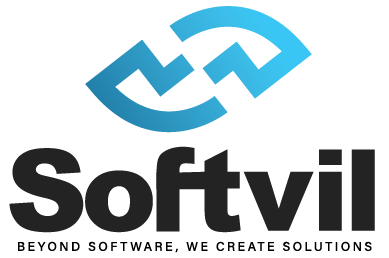EMERGING CAREERS THAT WILL RULE THE FUTURE OF WORK
A timely update on the world’s emerging and highest-paid professions within the last five years.
There is no wonder how the world has evolved and created numerous amounts of career opportunities while some of the old professions continue to fade away. The constantly evolving demands of the modern world act as the main source for all emerging careers. The opportunities created by the international tech giants have paved the way for a set of advanced options in the emerging career fields. Let’s find out what are these astonishing future careers.
ARTIFICIAL INTELLIGENCE SPECIALISTS
The role AI-Specialist has landed among the first few emerging jobs on the list. Firstly let’s get to know what Artificial Intelligence is. Just as the terminology speaks itself, Artificial Intelligence is defined as the form of intellectual behavior depicted by the machines. This can be any device that becomes aware of its surroundings and reflect successful actions in high probabilities. The Artificial Intelligence Specialists have a broad spectrum of roles that root from enhancing the uses and operations of Artificial Intelligence for various industries in the world. An example of a role of an AI-Specialist would be programming machines to test hypotheses aligning with the human mind via cognitive simulation.
ROBOTICS ENGINEERS
The next emerging career on the list would be the Robotics Engineer. To be frank, most of us wanted to be Robotic Engineers when we were youngsters full of robotic toys. Interesting as it sounds, the role of a Robotic Engineer would be to design and develop robots and robotic systems to perform activities that help mankind. Robotics engineering falls under the types of the most complex engineering streams. This is mainly because of the proficiency that is required in various technical areas. In other words, it is a complex collection of electronics, computer science, and mechanics combined with cognitive methodologies.
DATA SCIENTISTS
We all know that data is considered one of the most valuable assets of the new age. Likewise, Data Scientists are considered as the pioneers of so-called big data, where they take part in gathering and analyzing various sets and categories of data. A role of a Data Scientist is involved with a complex combination of statistics and mathematics infused with computer science. Analytical expertise is one of the key features that a Data Scientist needs to possess. They utilize this skill to identify trends and make assumptions in arriving at solutions for modern business challenges. This is one of the valid reasons why Data Scientists are within the top few of future careers.
DATA ENGINEERS
A Data Engineer’s role goes hand in hand with Data Scientist’s role. The extreme technical expertise in SQL database design and various other programming languages draws the line in between these two roles. The set of main responsibilities of a Data Engineer includes designing, developing, and maintaining complex architectures that align with the business requirements of organizations; acquisition and processing of data sets, identifying measures to improve quality, reliability, and efficiency of data. In simple terms, Data Engineers are responsible for the management and supply of data to the Data Science team.
CYBERSECURITY SPECIALISTS
Security is certainly an important aspect of our day-to-day lives. Likewise, Cybersecurity is one of the critically important aspects of the tech industry. The key components of this role would be to secure information systems, sensitive information networks, and data centers by continuous monitoring and investigation. The sole responsibility of protecting and safeguarding the entire IT environment of businesses from cyber attacks, cybersecurity threats, and other vulnerabilities lies in the hands of Cybersecurity Specialists. Therefore this role is considered as one of the top ranked emerging careers.
FULL-STACK ENGINEERS
This is another role that has been recorded in the top ranks of emerging career fields. Generally, a Full-stack Engineer is a well-skilled programmer who has multiple skill sets in working with systems, databases, and servers. To become one of these high-paid engineers, one must master all the areas that cover front-end development, back-end development, database technologies, DevOps, and Mobile application development. Yes, of course, it is complex as it sounds, and that is one of the reasons why Full-stack Engineers are listed among expensive resources in the tech market. The demand for these roles continues to grow in the job market as a result of their capabilities. A Full-stack Engineer has the expertise to look at software products and designs in a broader view, by doing so, they provide valuable opinions and lead-level advice for tech teams to proceed.
SITE RELIABILITY ENGINEERS
Site reliability engineering is known to connect the two parts of programmers and IT operations. This is a software engineering approach where the engineers use software as a tool to manage systems, to solving their problems, and automate tasks of IT operations. Site reliability engineering happens to be a popular practice in the IT industry that continues to help develop software systems with high reliability and scalability. This concept was introduced by Ben Treynor Sloss of the Google engineering team. A Site Reliability Engineer should ideally have a software development background along with experience in IT operations, or else, a system administration/ IT operations background with sound knowledge of software development.
CLOUD ARCHITECTS
Last but not least on the list is the role of a Cloud Architect. Cloud infrastructure is one of the top priorities for businesses today. Cloud architecture is known as the multiple components of the entire cloud computing setup. The responsibility of a Cloud Architect is to process the project requirements into a feasible architecture design that guarantees the success of the final product. The pathway that leads to becoming a Cloud Architect starts with covering the ground-level knowledge of cloud computing. As the expertise improves, it would be ideal to become certified in well-known cloud platforms like AWS, Microsoft Azure, and Google Cloud Platform. The demand for Certified Cloud Architects continues to grow in the emerging job market quite similar to the other roles listed above.

